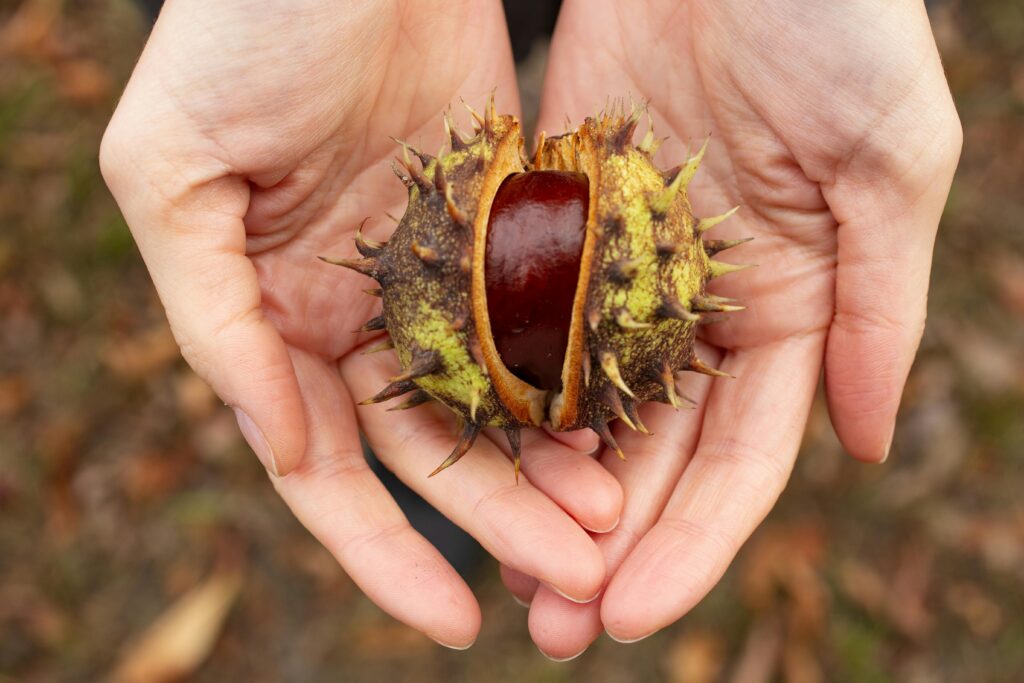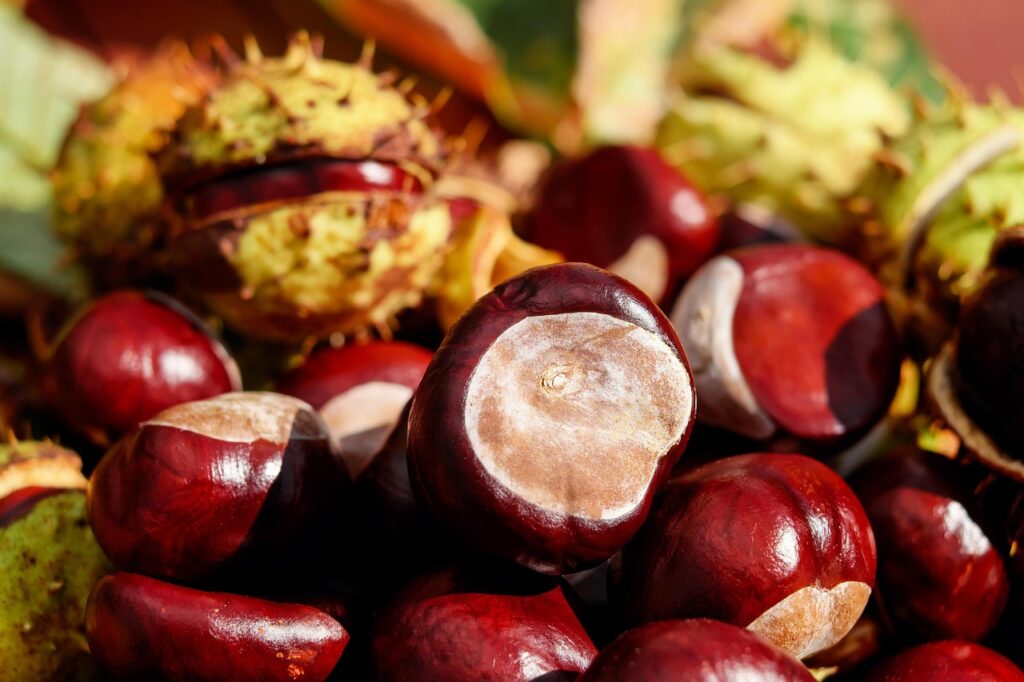
**Horse Chestnut: Nature’s Remedy for Health and Beauty**
In the realm of natural remedies and botanical treasures, few plants boast a long-standing reputation as versatile and effective as the horse chestnut (*Aesculus hippocastanum*). With its majestic spires of white flowers and medicinal seeds, horse chestnut has been used for centuries in traditional medicine. Today, modern science continues to uncover its potent benefits—not only for promoting human health but also for enhancing skincare, haircare, and body & bath products. Whether you’re seeking relief from varicose veins or looking for gentle, effective ingredients in your beauty routine, horse chestnut is an ingredient worth knowing.
The Health Benefits of Horse Chestnut
The primary bioactive component of horse chestnut is a triterpene glycoside called **aescin (escin)**. This compound imparts many of the plant’s medicinal properties, making horse chestnut a popular natural remedy.
1. Support for Circulatory Health and Varicose Veins
One of the most well-known uses of horse chestnut extract is in the treatment of venous insufficiency, primarily varicose veins and chronic venous leg disorders. Aescin helps strengthen vein walls, reduce venous pressure, and decrease swelling and inflammation. Numerous studies have demonstrated that taking horse chestnut seed extract can significantly reduce symptoms like leg swelling, aching, and heaviness.
2. Anti-Inflammatory and Antioxidant Effects
Aescin exhibits potent anti-inflammatory properties by inhibiting enzymes responsible for inflammation. Its antioxidant activity further protects tissues from oxidative stress, a key factor in aging and degenerative diseases. This makes horse chestnut valuable for conditions such as hemorrhoids, arthritis, and post-surgical recovery.
3. Swelling and Edema Reduction
Horse chestnut is often used to reduce swelling associated with sports injuries, lymphedema, and other conditions. Its ability to improve blood vessel tone and reduce capillary fragility helps minimize fluid leakage into surrounding tissues.
4. Potential Support for Skin Health
While primarily used for vascular concerns, horse chestnut’s anti-inflammatory and antioxidant effects may also benefit skin health, especially in reducing redness, swelling, and irritation.
5. Other Uses
In traditional medicine, horse chestnut has been used to treat coughs, bronchitis, and certain skin conditions. Modern formulations, especially topical ones, have refined these uses with a focus on safety and efficacy.
Enhancing Beauty with Horse Chestnut: The Cosmetology Advantage
In recent years, horse chestnut has earned a prominent spot in natural beauty products, owing to its gentle yet effective benefits. Its ability to enhance circulation, reduce inflammation, and reinforce blood vessel health makes it an excellent ingredient for skincare, haircare, and body & bath products designed for sensitive, aging, or problem-prone skin.
1. Skincare: Safe Relief for Sensitive and Mature Skin
**a. Reducing Redness and Swelling**
Horse chestnut’s anti-inflammatory properties help calm redness, puffiness, and irritation. This makes it suitable for sensitive skin and conditions like rosacea or dermatitis. Products like soothing creams, gels, and serums infused with horse chestnut can provide a gentle, non-irritating way to soothe inflamed skin.
**b. Improving Skin Elasticity and Brightness**
The vascular strengthening effects support healthy blood flow in the skin, aiding in the delivery of oxygen and nutrients. This can improve skin tone, enhance radiance, and reduce the appearance of fine lines caused by poor circulation and aging.
**c. Treating Varicose Veins and Spider Veins**
Topical horse chestnut extracts can help diminish the appearance of spider veins and varicose veins. When used consistently in gels or creams, they strengthen capillaries and reduce visible blood vessel leakage.
**d. Antioxidant Defense**
Horse chestnut’s antioxidants protect skin cells from environmental damage caused by UV rays, pollution, and stress, aiding in anti-aging efforts.
2. Haircare: Strengthening and Revitalizing Hair and Scalp
**a. Improving Circulation for Hair Growth**
A healthy scalp relies on good blood flow. Horse chestnut extracts stimulate microcirculation, nourishing hair follicles and encouraging healthy growth.
**b. Combating Scalp Inflammation and Sensitivity**
Its anti-inflammatory qualities help soothe irritated scalps, reduce dandruff, and calm scalp sensitivities.
**c. Strengthening Hair and Preventing Thinning**
By supporting vascular health at the scalp level, horse chestnut can contribute to thicker, fuller hair. It’s particularly beneficial for those experiencing hair thinning related to scalp inflammation or poor circulation.
3. Body & Bath Care: Relaxing, Invigorating, and Healing
The environmental impact of horse chestnut (Aesculus hippocastanum) is generally considered to be positive, especially when cultivated responsibly. However, there are some considerations to keep in mind:

- Native and Cultivated Use: Horse chestnuts are often planted in parks, urban areas, and roadside plantings, providing shade, reducing urban heat, and supporting biodiversity.
- Air Quality: Like other trees, horse chestnuts help improve air quality by absorbing carbon dioxide and releasing oxygen.
- Pollinator Support: Their flowers attract bees, butterflies, and other pollinators, contributing to local ecosystems.
- Erosion Prevention: As a sizable, deep-rooted tree, horse chestnuts can help prevent soil erosion in urban and rural settings.
Conclusion
In moderation and with responsible management, horse chestnuts can have a largely beneficial environmental impact, contributing positively to urban greenery, supporting pollinators, and aiding in climate regulation. Like other trees, their ecological footprint is minimal compared to many industrial processes, but careful handling is essential to prevent and manage pests and ensure they do not become invasive outside their native range.
